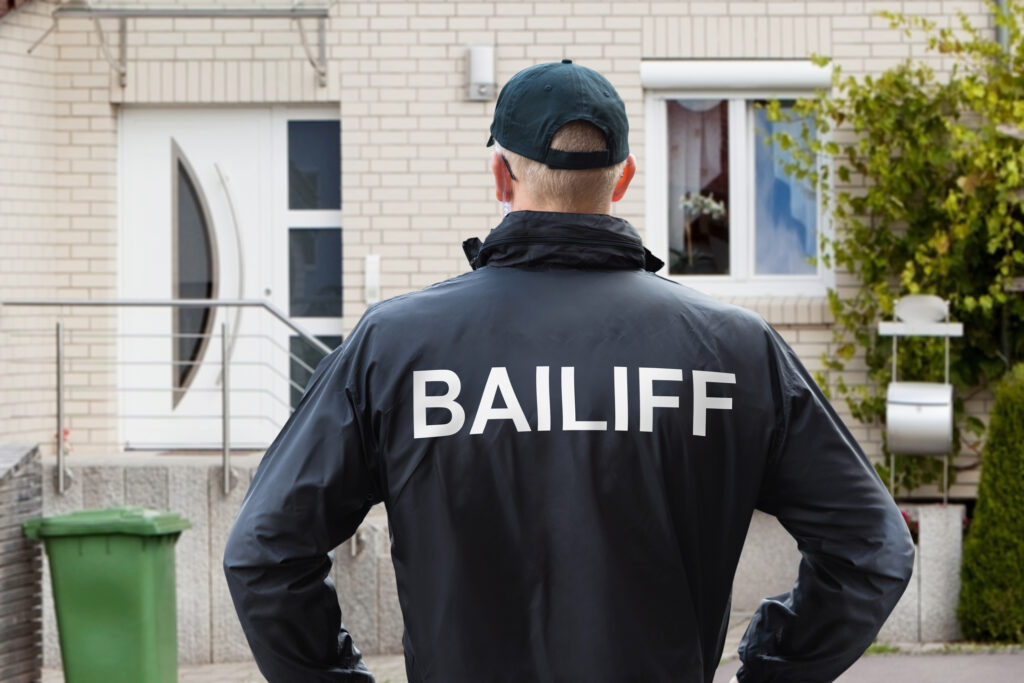MANCHESTER, UK. 23rd February, 2024 – With councils facing funding cuts and more people falling behind with their council debt payments, a recent investigation has found that bailiff referrals by English councils have risen by over 20%.
Nobody likes the thought of bailiffs knocking on your door and trying to collect a debt, so if the news that bailiff referrals are on the increase makes you feel anxious, you’re not alone.
A recent investigation by the BBC found that there has been a 20% rise in councils calling in the bailiffs to recover unpaid debts. With funding cuts hitting council budgets hard and several councils dealing with debt themselves, many local authorities have said that they need to collect every penny to continue to deliver services to the community.
Of 280 councils in England, Birmingham saw the biggest rise in bailiff referrals between 2022 and 2023. The number of referrals made in the same seven-month period increased from 7,875 to 42,283, a rise of 500%. Chorley was the only council to buck this trend, reducing referrals by 80% and implementing a support-focused policy that involved employing a social prescribing team to work directly with vulnerable people.
What are council debts?
Council debts include council tax arrears, parking fines, unpaid business rates, and housing rent arrears.
It’s estimated that there is £500m of uncollected public debt each year putting a strain on council finances, but with the cost-of-living crisis more and more people are struggling to pay their debts.
When can the council refer debts to bailiffs?
The council must get a liability order before they can take further action against you.
If you fall behind with your council tax payments or fail to pay a council parking fine, they can apply to the magistrates’ court for a liability order. Once this is in place, they’re free to take enforcement action.
Enforcement action can include calling in the bailiffs; making a deduction from your earnings or benefits; securing the debt onto a property you own; or forcing you into bankruptcy.
The council can choose which enforcement action they use but can only use one for each liability order.
If bailiffs are called in, you should receive at least seven days’ notice and you’re also not obligated to let them into your home.
How much does it cost to have council debt referred to bailiffs?
Each time the council takes action to recover unpaid debts, these costs are added to the debtor’s overall bill. This means that pursuing bailiff action and adding these extra fees can sometimes drive people who are already struggling with their finances deeper into debt.
There is a charge for every step:
- If the council seeks court permission to recover funds £100 will be added to your debt
- Once they contract an enforcement agency an extra £75 will be added to your debt
- A visit from the bailiff can add an extra £235
- If goods are seized and sold at auction to repay the debt £110 is added
If High Court bailiffs are involved or your debts are more than £1,500, the costs can be even higher.
What should I do if I have council debts?
If you’re fallen behind with your council tax or any other type of council debt, you can take steps to prevent bailiff action.
Make an offer
You can make an offer of payment to the council at any time. If you can afford to pay your debt, pay it off as soon as possible. If you don’t have the money to clear your debt, you can work out your monthly budget and put together a proposed payment plan based on how much you can afford to pay each week or month. Be prepared for the council to ask to see your budget to prove your offer is fair.
Enter Breathing Space
Breathing Space is a government programme that gives you time to seek debt advice and find the right debt management solution for you. During Breathing Space, no further action can be taken against you by the council, including referring your case to the bailiffs. Breathing Space lasts 60 days and you can enter one once in each calendar year.
Seek debt advice
Professional debt advice can help you find solutions that could start to tackle your council debts and prevent bailiff action. Our friendly team here at Bailiff Helpline will take the time to understand your situation and talk you through the different debt management solutions available so that you can find the right one for you.
Dealing with council debts? The team at Bailiff Helpline are here to help. Give us a call today on 0161 660 7255 or visit the website for more information bailiffhelpline.co.uk

